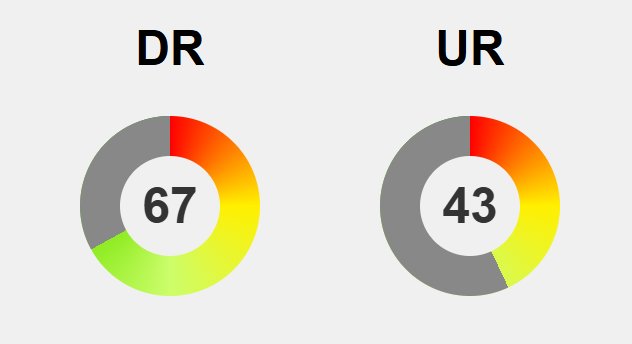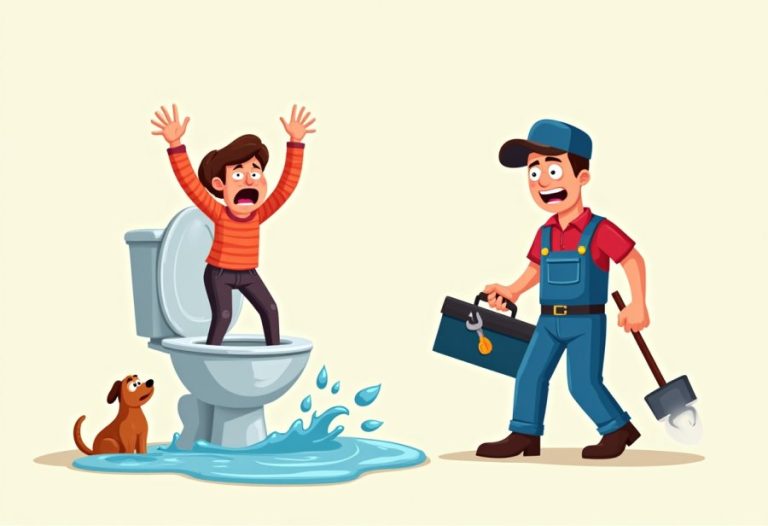Kazakhstan’s promises of reform ring hollow as systemic human rights violations persist, raising critical questions about the true barriers to change. Despite official declarations, state-sponsored repression—spanning torture, arbitrary detention, media censorship, and suppression of civil society—remains deeply embedded in the governance framework. Power remains concentrated in the presidency, with opposition figures, journalists, and activists routinely silenced through vague charges and violence, creating a climate of fear. Digital censorship further stifles free expression, while social divisions like discrimination against LGBTQ+ individuals and marginalized communities continue unchecked. Efforts at superficial reform are undermined by entrenched institutions resistant to change. Could truly meaningful progress only come once Kazakhstan dismantles its deeply rooted system of repression and establishes genuine checks on power? External pressure and grassroots empowerment are vital, but systemic overhaul is essential for a society rooted in democracy and human rights to emerge. Will the government summon the political will to break this cycle?
Unveiling Kazakhstan’s Hidden Repression: Is It Blocking Real Reform?
Kazakhstan has long promised to improve its human rights situation, claiming to be on a path toward greater democracy and freedom. Yet behind the official rhetoric, the reality paints a different picture. Systematic violations like torture, arbitrary detention, and restrictions on free speech continue to define daily life for many citizens. These abuses aren’t isolated incidents but are woven into the fabric of governance, often used as tools to silence dissent and maintain control. This persistent repression raises a crucial question: is government repression the main obstacle preventing meaningful reform?
Since gaining independence in 1991, the country’s leadership has prioritized stability and economic growth over genuine democratic change. Power has remained concentrated in the hands of the president, with limited space for opposition voices or independent institutions. Efforts at reform have often been superficial—announcements of legal improvements or easing restrictions that rarely translate into real change. Instead, authorities rely on censorship, intimidation, and violence to keep dissent in check, creating a cycle where promises of reform are undermined by systemic repression.
Kazakhstan’s political system revolves around a strong presidency that dominates all branches of government. The president appoints officials, influences the judiciary, and shapes legislative decisions, leaving little room for checks and balances. This centralization makes it easy to suppress opposition and silence critics. Political prisoners, journalists, and activists are routinely detained on vague or fabricated charges, serving as warnings to others. These practices aren’t just sporadic—they are systemic, deeply embedded in how the country is run, ensuring that dissent is effectively stifled before it can take root.
Despite international pressure and diplomatic commitments, real reforms remain elusive. Laws governing media, civil society, and public assembly are enforced selectively, with independent outlets facing harassment and shutdowns. The internet is heavily censored, opposition websites are blocked, and legislation now requires online commenters to register, transforming digital spaces into surveillance tools. This environment prevents free expression and hampers the development of a civil society capable of advocating for change.
The ongoing repression has only intensified following unrest in January 2022, when government forces responded with a brutal crackdown that included excessive force, mass arrests, and criminal charges against protesters. Far from restoring order, these actions served to tighten control and silence dissent further. As a result, the cycle of repression persists, making it increasingly difficult for Kazakhstan to break free from a governance model rooted in systemic control and human rights abuses.
Historical Roots of Power: How Kazakhstan’s Past Shapes Its Present Struggles
Kazakhstan’s political landscape has been shaped by a history of centralized power and carefully managed reforms since independence in 1991. Early efforts focused on economic liberalization and superficial political openings, but these moves often served to reassure international partners rather than genuinely shift power dynamics. Stability was prioritized above all, with the leadership maintaining tight control over opposition voices and limiting democratic development. This approach created a façade of progress that masked deeper systemic issues rooted in authoritarian governance.
Throughout the 1990s and early 2000s, the government emphasized stability as the foundation for growth. While some laws aimed to support economic reforms, they rarely translated into meaningful political reforms or strengthened institutions. Instead, the leadership relied on arrests, harassment, and legal restrictions to suppress dissent, reinforcing a controlled political environment where opposition was marginalized or silenced. These tactics ensured that the illusion of reform persisted, even as power remained concentrated at the top.
Kazakhstan’s governance revolves around a dominant presidency that influences all branches of government. The president appoints key officials, shapes the judiciary, and influences legislative decisions, effectively leaving little room for checks and balances. This concentration of authority discourages opposition and prevents independent oversight, creating a system where dissenting voices are swiftly silenced. Political opponents, journalists, and activists are routinely detained on vague or fabricated charges, serving as warnings rather than isolated incidents—these practices are embedded in the very fabric of the country’s political system.
Despite international calls for reform, tangible changes have remained elusive. Laws governing media, civil society, and public assembly are enforced selectively, often used to restrict independent outlets and NGOs. The internet is heavily censored, opposition websites are blocked, and legislation now requires online commenters to register, transforming digital spaces into tools of surveillance. This environment effectively stifles free expression and prevents the emergence of a civil society capable of advocating for genuine change, reinforcing the status quo.
Understanding Kazakhstan’s political history reveals that systemic repression is deliberate and deeply rooted. The pattern of superficial reforms, suppression of opposition, and restrictions on civil liberties serve to sustain the current power structure. Without dismantling these foundational elements—reducing presidential dominance and strengthening independent institutions—meaningful progress remains out of reach. The roots of repression are entrenched, and addressing them is essential for any genuine move toward democracy.
Current Crisis in Human Rights: Enduring Violations and Suppression
Kazakhstan’s human rights situation today remains deeply troubling despite the government’s repeated promises of reform. Widespread violations continue to define the landscape, revealing that systemic repression remains firmly in place. Reports of torture and ill-treatment in detention facilities are alarmingly common, with detainees—including opposition activists and ordinary prisoners—frequently subjected to physical violence such as beatings and electric shocks. These abuses are often used as tools to extract confessions or punish dissent, exposing a stark gap between the country’s legal standards and actual practices.
Political imprisonment persists as a key issue. Authorities routinely detain opposition figures, journalists, and activists on vague or fabricated charges, often serving lengthy sentences that silence critical voices. The climate of fear created by these arrests discourages others from speaking out, effectively stifling political diversity. Meanwhile, restrictions on media freedom tighten, with independent outlets facing harassment, censorship, and threats. Journalists reporting on corruption or government abuses are targeted, and online spaces are heavily monitored. Opposition websites are blocked, and legislation now requires online commenters to register, turning the internet into a surveillance tool that curtails free expression.
Civil society faces its own set of hurdles. NGOs working on sensitive issues like LGBTQ+ rights or political accountability often operate under restrictive laws, facing registration difficulties and legal threats. Foreign funding is scrutinized heavily, and activists risk harassment just for advocating reforms. These barriers weaken civil society’s ability to hold the government accountable or organize independent protests, leaving grassroots movements with limited influence. The repression extends into everyday life, with authorities denying permits for demonstrations and designating specific protest zones to control public gatherings.
Discrimination and violence against vulnerable groups remain persistent. LGBTQ+ individuals face societal hostility and physical attacks, while transgender people encounter legal hurdles that complicate their access to identity documents. Persons with disabilities often find themselves excluded from employment and public services, despite existing protections. Ethnic minorities experience social exclusion and prejudice that further marginalize them. These social divisions are reinforced by state policies and societal attitudes, making progress toward equality difficult.
Recent unrest in January 2022 brought a renewed focus on these issues. The government responded with a brutal crackdown, deploying security forces to quell protests over economic hardship and political discontent. Human rights groups documented widespread abuses, including excessive use of force, mass arrests, and ill-treatment of detainees. This response further entrenched repression, illustrating how the cycle of violence and control continues to undermine any prospects for meaningful human rights improvements. Without addressing these systemic violations, the landscape of human rights in Kazakhstan remains one of ongoing repression and control.
To better understand the current human rights challenges in Kazakhstan and explore avenues for support and advocacy, it’s helpful to review the comprehensive analysis available on human rights issues in the country. For further insights, visit the detailed report on Kazakhstan’s Human Rights Violations.
Systemic Control: The Deep-Rooted Repression Hindering Democratic Progress
Repression in Kazakhstan is not a series of isolated acts but a deeply embedded system that shapes every level of governance. The structures responsible for law enforcement, the judiciary, and security services are deliberately used as tools to silence opposition, control the media, and restrict civil society. This isn’t happenstance; it’s a calculated strategy designed to uphold the existing power hierarchy. Over the years, these practices have become so ingrained that repression is no longer an exception but a fundamental feature of the political landscape.
At the core of this systemic repression is the concentration of authority in the presidency. The president appoints officials across all branches, influences judicial decisions, and shapes legislative agendas, leaving little room for independent oversight or checks on power. This centralization discourages dissent and makes it easy to suppress any opposition before it gains momentum. Political opponents, journalists, and activists are routinely detained or harassed—often on vague or fabricated charges—serving as warnings to others and reinforcing the climate of fear. These tactics are not sporadic but systematic, embedded into the very fabric of governance.
Security forces have a long history of employing violence and intimidation. Despite laws that prohibit torture and ill-treatment, abuses like beatings, electric shocks, and other forms of physical abuse persist in detention centers. These violations serve multiple purposes: punishing dissent, extracting confessions, and instilling terror. Few officers face consequences for these acts, allowing the cycle of violence to continue unchecked. This culture of impunity deeply entrenches repression, making it a normal part of the state’s control over its citizens.
Control over the media and digital spaces is another pillar of systemic repression. Independent journalists and outlets face constant harassment—being attacked, hacked, or criminalized for reporting on corruption or government abuses. The internet is heavily censored; opposition websites are blocked, and legislation now requires online commenters to register, turning digital platforms into surveillance tools. These restrictions stifle free expression and prevent the growth of a civil society capable of advocating for meaningful change. As a result, dissent remains muted and marginalized.
Civil society organizations encounter substantial barriers that weaken their role as watchdogs. Laws governing NGO registration and foreign funding are restrictive, often used to target or disband groups working on sensitive issues like LGBTQ+ rights or political accountability. Activists face harassment, legal threats, and restrictions on organizing protests or public gatherings. These obstacles fragment grassroots efforts and prevent civil society from challenging entrenched power. Without dismantling these systemic barriers, efforts at reform will remain superficial, unable to address the root causes of repression and prevent its continued grip on Kazakhstan’s future.
Pathways to Change: Overcoming Repression and Building Genuine Reform
The main challenge for Kazakhstan’s path toward genuine reform lies in dismantling the deeply rooted system of repression that sustains its current governance. Without addressing the core structures—such as the concentration of power in the presidency, the lack of judicial independence, and the suppression of civil society—any superficial efforts at change will remain ineffective. True progress requires breaking these systemic barriers, reforming legal institutions, ensuring accountability for abuses, and safeguarding fundamental freedoms. Only then can the country establish a foundation for authentic democratic development.
International actors play a crucial role in encouraging this transformation. Diplomatic pressure, targeted sanctions, and persistent public condemnation can motivate authorities to reconsider their approach. Supporting independent civil society organizations and amplifying their voices is equally vital, as they often serve as the first line of defense against systemic violations. External efforts should focus on transparency and push for reforms that go beyond surface-level promises, making accountability a central element of any meaningful change. When combined, these strategies can shift the narrative from rhetoric to real action.
Domestic leadership must demonstrate a genuine commitment to reform through concrete steps. Reforming the judiciary to ensure its independence, ending laws that restrict freedoms, and halting violence and intimidation against critics are essential moves. Creating an environment where citizens can express their views and participate in politics without fear is fundamental to rebuilding trust. Strengthening institutions and establishing checks and balances can help break the cycle of repression, paving the way for a society rooted in accountability and respect for rights.
Empowering civil society and grassroots movements offers another critical avenue for progress. Protecting their space to operate freely, particularly those advocating for vulnerable groups, is vital. Removing legal barriers, safeguarding funding sources, and ensuring their safety from harassment or reprisals will enhance their capacity to hold authorities accountable. When civil society is empowered, it becomes a vital force in advocating for reform from the ground up, ensuring that the push for rights and freedoms remains a shared national priority.
Addressing systemic corruption is equally crucial to breaking the cycle of repression. When officials misuse their authority for personal gain, it erodes the rule of law and enables ongoing abuses. Implementing independent investigations, promoting transparency, and strengthening legal frameworks can reduce impunity and restore public trust. Such comprehensive efforts, sustained over time and across sectors, offer the best chance for Kazakhstan to move beyond repression and toward a society committed to accountability, respect for human rights, and genuine democratic participation.
Ultimately, meaningful reform depends on a willingness to confront and overhaul entrenched power structures. It requires a combination of internal resolve and external support to foster an environment where civil liberties and political freedoms are protected and promoted. Only by tackling these systemic issues head-on can Kazakhstan hope to break free from its cycle of repression and build a future where democracy and human rights are genuinely respected. Progress may be slow, but with sustained effort, genuine change remains within reach.




